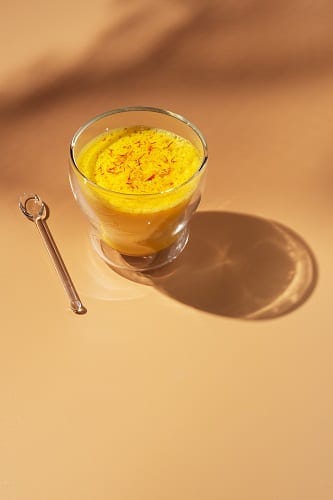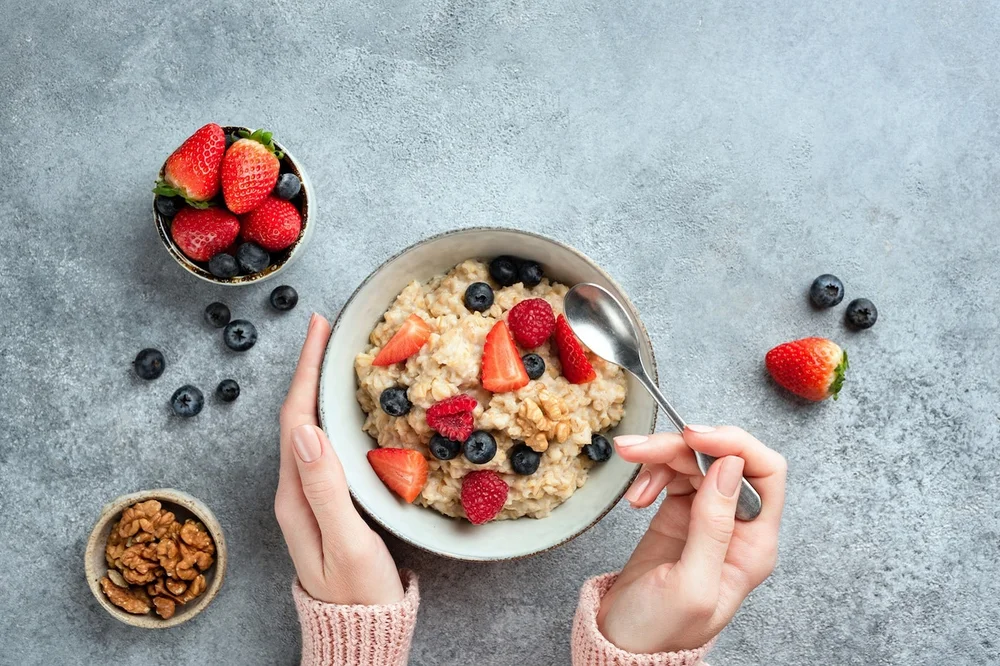These Warm Beverages Are Some of the Best Coffee Alternatives
Americans love coffee!
Surveys show that roughly 62% of Americans drink coffee every day, and 7 out of 10 drink coffee every week.
Unfortunately, coffee doesn’t always love us back.
Its high caffeine content can cause jitters and stoke feelings of anxiousness. Coffee can disrupt sleep, especially when it’s consumed late in the day. It also can cause digestive issues and headaches.
From a brain health perspective, coffee is problematic because it restricts blood flow to the brain. One study showed that among healthy coffee drinkers, cerebral blood flow was reduced by 27%. If you consider that your brain uses 20% of the blood flow in your body, any reduction in blood flow isn’t good for brain function.
For those willing to give java a rest, there’s great news. A new world of healthy and delicious warm beverages awaits you. Here are some of the best fall drinks to warm your body and spirit!
Warm Beverages for Cold Months: 5 Healthy Coffee Alternatives!
1. Tea
Welcome to the land of tea! Unlike coffee, which comes from a bean, tea is derived from plants, most commonly Camellia sinensis.
Historically, tea consumption far outdates coffee drinking by thousands of years. Tea is the original warm beverage. Here’s a rundown of the different types of tea you can enjoy exploring.
- Black Tea
Black teas are the most common in the world. During the production process of black tea, the tea leaves are allowed to fully oxidize before they’re heat-processed and dried.
Through the process of oxidation, the leaves turn a rich, dark brown to black color that black tea leaves are known for. With roughly half the caffeine content as coffee, black tea doesn’t hit the body quite so hard but still provides some of the alertness and cognitive boosting benefits.
Get adventurous and enjoy trying different kinds of black tea or try a loose-leaf brand for the most robust flavor. Enjoy traditional English black teas such as Earl Grey or English Breakfast. Or try a Darjeeling, Assam, or Ceylon tea, which are grown in different regions of India, all with their own distinct flavors.
They’re delicious black, but many people enjoy them with milk or a sweetener. For a healthy choice, try an unsweetened plant-based milk or creamer and a dash of stevia or maple syrup.
- Green Tea and Matcha Tea
Green tea primarily comes from Chinese and Japanese cultures. It’s derived from the same plant as black tea, however it is minimally oxidized and processed employing more traditional methods such as sun-drying or pan-firing, or modern methods such as oven-drying or steaming. The result is a lighter tea with superfood health benefits.
Green tea is loaded with antioxidants, including a catechin called epigallocatechin-3-gallate (EGCG), the amino acid l-theanine, and a small amount of caffeine. EGCG has extraordinary anti-inflammatory benefits. The reduced caffeine combined with the l-theanine provides a mild lift that’s also calming.
Green tea consumption is associated with numerous health benefits including heart health, antioxidant protection, relaxation and cognition, blood sugar stability, improved memory, healthy weight, and more.
Start your day with a cup of plain green tea for a relaxed, focused energy.
Matcha tea is a potent green tea powder made by steaming, drying, and grinding the leaves of the Camellia sinensis plant. Since you get the whole leaf in the powder, it’s highly concentrated, providing more of the same benefits found in brewed green tea. It has an earthy, bitter flavor that lends well to making lattes with plant milks.
- White Tea
Also derived from Camellia sinensis, white tea is a very delicate tea variety because it is minimally processed. It’s harvested just before the tea leaves fully open, when the young buds are covered in fine white hairs, which gives the tea its name.
Handpicked and meticulously air dried to limit oxidation, the tea has a mellow, slightly fruity taste. It’s the freshest tea and has the lowest caffeine content of the teas made from Camelia sinensis.
- Yerba Mate
Yerba mate, or simply “mate,” is the most popular tea in South America and is derived from the holly plant, ilex paraguariensis. It’s rich in vitamins and minerals, amino acids, antioxidants, fatty acids, and naturally occurring caffeine. Some say it induces mental clarity, sustains energy levels, reduces fatigue, aids in weight control, and fights bad breath.
Quite different than black and green teas, yerba mate has a distinct taste best described as earthy, bitter, grassy, and strong. It takes a little getting used to before it hooks you. It’s best served plain.
- Herbal Tea
Don’t forget the myriad caffeine-free herbal teas, many of which offer a host of health benefits. For example, peppermint tea is known to calm the stomach. Chamomile tea is prized for its relaxing effects.
Ginger tea is wonderful for reducing nausea or as an after-dinner digestive. Or if you want a flavorful, caffeine-free alternative to black and green teas, try Rooibos tea, which comes from Africa and is also loaded with health-promoting compounds.
2. Golden Turmeric Milk

Using your favorite unsweetened plant milk as a base, golden milk incorporates spices such as turmeric (which gives the beverage its distinctive color), ginger, cinnamon, and pepper. Some recipes will call for the additions of vanilla, cardamom, and a natural sweetener such as honey, maple syrup, agave, monk fruit, or stevia.
Turmeric is known for its powerful anti-inflammatory properties. The black pepper helps to optimize absorption, as does fat (you can add a teaspoon of coconut oil, if you prefer).
You can prepare golden milk in about 5 minutes.
Here’s how:
- Combine 1 cup plant milk of choice with 1/2 teaspoon of ground turmeric, 1/4 teaspoon of cinnamon, 1/8 teaspoon of ground ginger, and a pinch of black pepper in a saucepan. (Add natural sweetener of choice to taste.)
- Warm the mixture on medium heat.
- Once heated, pour the drink into a cup or mug and enjoy!
3. Healthy Hot Cocoa or Fresh Brewed Cacao
There’s nothing like a sweet warm treat on a cool crisp morning (or evening). Make yourself a cup of brain healthy hot cocoa.
Cocoa, made from the superfood cacao, is loaded with antioxidants and nutrients, such as iron, zinc, selenium, and magnesium. Consuming moderate amounts of cocoa may help boost your attention, working memory, and general cognition – as well as support immune health, cardiovascular health, nerve, and muscle function, and more.
The trick is to choose a high-quality, organic, unsweetened cocoa powder, which is available at many health food and specialty stores, and even some supermarkets.
- Warm up 8 oz of your favorite unsweetened plant milk in a saucepan, maybe even frothing it before you heat it.
- Stir in a heaping teaspoon of cocoa powder and liquid chocolate stevia to taste.
- Top it with a sprig of cinnamon if you’d like.
- You can vary how you make it by using unsweetened coconut milk, adding vanilla, or using a different sweetener such as monk fruit or a small amount of maple syrup for those who don’t have blood sugar issues.
If you really crave a beverage like coffee, fresh brewed cacao may be for you. Surprisingly, roasting, grinding, and brewing cacao beans is believed to date back to 1,500 B.C. in Mexico.
Less processed than cocoa, cacao has twice the amount of healthy phytonutrients and compounds that are believed to support energy, immune health, healthy weight, focus, and relaxation.
Cacao is rich in theobromine, which is in the same class of stimulants as caffeine. Yet, theobromine provides a lasting, more relaxed energy without the crash that caffeine has.
It has a full, chocolatey aroma, and formidable flavor that perfectly replaces coffee. You can purchase brewing cacao online or at specialty stores.
To brew at home, simply use a heaping tablespoon of cacao for one cup and steep in boiling water for 6-10 minutes using a steeping device. If using a French press, put in the same amount per cup and steep for 10 minutes. Plunge, pour, and enjoy!
4. Chicory Root
If you want a coffee-like flavor without a stimulant, chicory root may be a great option. Chicory root can be roasted, ground, and brewed into a delicious hot beverage. It’s naturally rich in the prebiotic soluble fiber inulin, which may aid in digestion and support gut health.
You can find pre-ground and roasted chicory root at most stores and online. Simply brew it as you would coffee – in a filter coffee maker, French press, or espresso machine.
5. Spiced Apple Cider
Who doesn’t love a hot spiced apple cider on a cold fall day? This hot drink is fun to make with your family and friends. Unfiltered apple juice is loaded with vitamin C, and the spices used contain potent antioxidants and vitamins.
Here’s how to make it fresh:
Ingredients
- 4 cups freshly made apple juice (or unfiltered bottled apple juice)
- 4 whole cloves
- 3 cinnamon sticks
- 3 whole cardamom pods
- 2 Chinese star anise
- 1-inch piece of fresh ginger
- ½ teaspoon fresh lemon zest
- ½ orange, thinly sliced
Directions
- Pour juice in a medium-sized saucepan.
- Add cloves, cinnamon sticks, cardamom, anise, ginger, and zest of lemon.
- Cover and heat on low-medium heat for 20 minutes.
- Add orange slices during the last 5 minutes.
- Remove from heat and strain to remove spices and fruits.
- Serve and enjoy!
Healthy, Warm Beverages
Ultimately, putting down the coffee provides an opportunity to discover new, warm, brain healthy, and delicious beverages to enjoy this fall and winter. These ideas and recipes should help you get started!
At BrainMD, we’re dedicated to providing the highest purity nutrients to improve your physical health and overall well-being. For more information about our full list of brain healthy supplements, please visit us at BrainMD.
- Here Are Some of the Best Tension Release Exercises to Help You Feel Your Best! - April 17, 2024
- Foodscaping: How to Grow Healthy Foods In Your Own Garden! - April 12, 2024
- Eat Your Fruits and Veggies (Don’t Drink Them) - March 29, 2024




Can cacao have adverse affects?
I’ve introduced it to my diet and been feeling rubbish all week – headachey and dizzy. I’m
Unsure if that’s the cause or something else. The docs didn’t have firm answers and wasn’t interested in discussing nutrition.